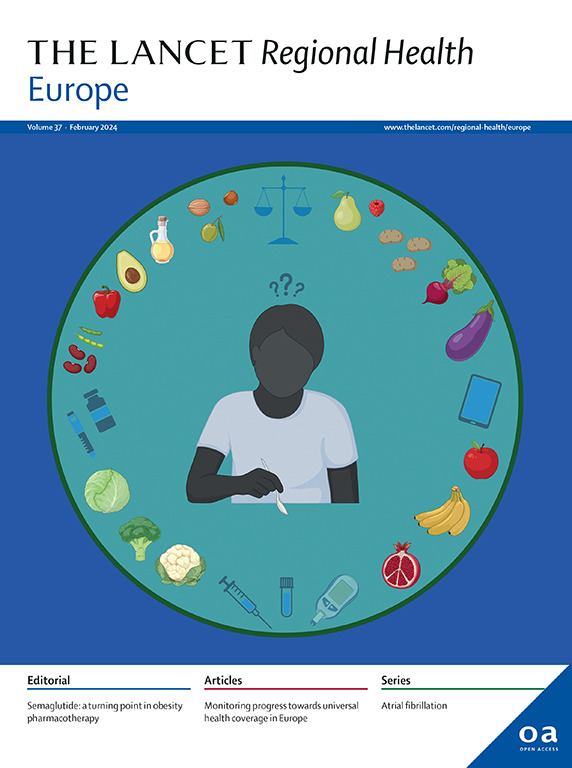Comparative effectiveness of different therapies for Clostridioides difficile infection in adults: a systematic review and network meta-analysis of randomized controlled trials
IF 13.6
Q1 HEALTH CARE SCIENCES & SERVICES
引用次数: 0
Abstract
Background
Clostridioides difficile infection (CDI) is a leading cause of healthcare-associated diarrhea, with substantial morbidity and mortality. CDI is a severe and growing problem with numerous treatment options. We evaluated the effectiveness of all therapies in recurrent and non-recurrent infections and their prevention.
Methods
This network meta-analysis and systematic review of randomized controlled trials (RCTs) compared all CDI therapies and preventions. We included RCTs published until 19 August 2024 and focused on adult population. We performed a systematic search in MEDLINE, EMBASE, and Cochrane Central Register of Controlled Trials. Inclusion criteria were patients: adults (>16) treated against CDI; study type: randomized controlled trial; outcome: cure rate, recurrence or effectiveness of prevention. Any publication not meeting all criteria was considered to be ineligible and excluded. We applied random-effects meta-analysis using frequentist methods. We reported our main results as odds ratios (as a symmetric effect size measure, OR) with 95% confidence interval (95% CI). We used the Cochrane risk-of-bias tool to assess the risk of bias. Our study protocol was preregistered in PROSPERO (CRD42022371210).
Findings
We assessed 73 RCTs with 28 interventions, involving 27,959 patients (49.2% female) in five networks. Fecal microbiota transplantation (FMT) was the most effective treatment in terms of the cure rate overall (P-score: 0.9952) and in recurrent cases (P-score: 0.9836). In recurrent cases, fidaxomicin (P-score: 0.6734) showed significantly greater effectiveness than vancomycin (P-score: 0.3677) and tolevamer (P-score: 0.0365). For non-recurrent CDI treatments ridinilazole, fidaxomicin, FMT and nitazoxanide were equally effective. Ridinilazole (P-score: 0.7671) and fidaxomicin (P-score: 0.7627) emerged as the most effective in preventing recurrence. Probiotics were not effective in preventing CDI, since network meta-analyses did not show significant differences between probiotics and placebo. In probiotics’ subgroups pairwise meta-analyses Lactobacillaceae proved to be significantly more effective in prevention than placebo. Oral and colonoscopic FMT administration methods were equally effective. The study-level aggregated risk of bias of the publications included ranged from low to high. We observed relevant heterogeneity among studies in therapeutic doses, treatment durations, and follow-up times.
Interpretation
The superiority of FMT in the treatment of CDI highlights the potential for increased use of FMT in clinical settings. Further research on optimizing FMT protocols and exploring its long-term safety and efficacy in larger samples is needed. Our findings suggest that the preventive use of probiotics might be questioned.
Funding
None.
成人艰难梭菌感染不同治疗方法的疗效比较:随机对照试验的系统评价和网络荟萃分析
背景艰难梭菌感染(CDI)是医疗保健相关性腹泻的主要原因,具有很高的发病率和死亡率。CDI是一个严重且日益严重的问题,有许多治疗选择。我们评估了所有治疗复发性和非复发性感染及其预防的有效性。方法本网络荟萃分析和随机对照试验(rct)的系统评价比较了所有CDI治疗和预防方法。我们纳入了截止2024年8月19日发表的随机对照试验,主要针对成年人群。我们在MEDLINE、EMBASE和Cochrane中央对照试验登记处进行了系统检索。纳入标准为:接受CDI治疗的成人(>16);研究类型:随机对照试验;结果:治愈率、复发率或预防效果。任何不符合所有标准的出版物都被认为不合格并被排除。我们使用频率学方法进行随机效应荟萃分析。我们以95%置信区间(95% CI)的优势比(对称效应大小测量,OR)报告了我们的主要结果。我们使用Cochrane风险偏倚工具来评估偏倚风险。我们的研究方案已在PROSPERO中预注册(CRD42022371210)。我们评估了73项随机对照试验,涉及28项干预措施,涉及5个网络的27,959例患者(49.2%为女性)。粪便菌群移植(FMT)在总治愈率(p值:0.9952)和复发病例(p值:0.9836)方面最有效。在复发病例中,非达霉素(P-score: 0.6734)的疗效显著高于万古霉素(P-score: 0.3677)和tolevamer (P-score: 0.0365)。对于非复发性CDI治疗,利地尼唑、非达霉素、FMT和硝唑尼特同样有效。利地那唑(p值:0.7671)和非达霉素(p值:0.7627)预防复发效果最好。益生菌在预防CDI方面没有效果,因为网络荟萃分析显示益生菌和安慰剂之间没有显着差异。在益生菌亚组中,两两荟萃分析证明乳酸杆菌科在预防方面明显比安慰剂更有效。口服和结肠镜下FMT给药方法同样有效。纳入的出版物的研究水平汇总偏倚风险从低到高不等。我们观察到研究在治疗剂量、治疗持续时间和随访时间方面的相关异质性。FMT在治疗CDI方面的优势突出了FMT在临床应用的潜力。需要进一步研究优化FMT方案,并探索其在更大样本中的长期安全性和有效性。我们的研究结果表明,益生菌的预防使用可能会受到质疑。
本文章由计算机程序翻译,如有差异,请以英文原文为准。
求助全文
约1分钟内获得全文
求助全文
来源期刊

Lancet Regional Health-Europe
Multiple-
CiteScore
19.90
自引率
1.40%
发文量
260
审稿时长
9 weeks
期刊介绍:
The Lancet Regional Health – Europe, a gold open access journal, is part of The Lancet's global effort to promote healthcare quality and accessibility worldwide. It focuses on advancing clinical practice and health policy in the European region to enhance health outcomes. The journal publishes high-quality original research advocating changes in clinical practice and health policy. It also includes reviews, commentaries, and opinion pieces on regional health topics, such as infection and disease prevention, healthy aging, and reducing health disparities.
 求助内容:
求助内容: 应助结果提醒方式:
应助结果提醒方式:


